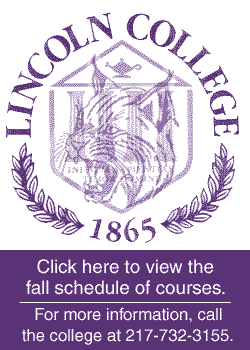|
Q:
I understand that youíre about to be deployed on a ship. Tell us
when that is going to happen, the type of rig that youíll be on
and the kinds of experiences that youíre likely to encounter.
A:
My crew partner and I want to get on a break bulk or dry bulk ship.
They carry dry commodities like ore or coal. It is a ship with a big
hull in the middle and they just dump grain or whatever in it. These
are usually low-value commodities. We will more than likely be going
to the Mediterranean. We will be leaving the first week in November,
and we will be out to sea for four months. While you are at sea, you
are either a deck cadet or an engine cadet. You have a normal
job...you have an eight-hour watch. You also have a sea project to
do which is very challenging. A lot of people fail it, and if they
do, they have to go out to sea again. We also will get paid $20 a
day to do that. We will also have a lot of port time, including a
week or two of turnaround time. I think that that will be a really
good experience...to be able to graduate and to be able to say that
I really know what to do.
Q:
So what will you have left when you get back to school?
A:
I will finish my second year. Then I will go to sea for my junior
year and then come back and finish my senior year here on campus
.
Q:
Other than color guard, what other activities are you involved in?
A:
Iím playing rugby now.
Q:
Changing gears...reflect on your time in Lincoln and how it prepared
you for college.
A:
Academically, I donít know if any school can totally prepare you
for what you will face. They might be able to teach you how to study
hard, but they canít prepare you for this stuff. Socially,
absolutely not! The culture out here is totally different. People
look at you weird if you even say hello to someone you donít know.
Q:
What about athletically? I know you played tennis, soccer and
basketball. Did any of those sports prepare you for your college
experience?
A:
I think the sport that did was basketball. It came from the coaches.
I think what the basketball coaches taught me is exactly what I
needed and what everyone at Lincoln High School could use. The
philosophy that it taught me...things like never quit, do better
than you did yesterday, and perfecting the fundamentals has stuck
with me. Every basketball practice was about perfecting every
detail, and itís the same thing now. The people who pay attention
to the details seem to get the most out of things here. So I have an
appreciation for the coaches that worked me hard and took the time
to talk me through the reasons we were doing certain things. That
was just the greatest thing and the thing that I am the most
thankful for. It has paid off for me here. There may be things that
you donít like...you still have to do them to make the progress to
the next level.

(To top of second
column in this section)
|

Q:
I know you miss your former Railer teammates? What made your time
with them so special?
A:
I havenít met anyone that I feel as close to as I do with the guys
I played basketball with. Iíve met some good guys out here, but Iím
not as close to them as I am to the guys back home in Lincoln. I
still care for those guys, and I think they feel the same way about
me. I feel like that is something that will never change. What we
accomplished together was something very special.
Q:
What would you say to your teammates by the way of advice?
A:
Itís funny...but, I looked up to all of those guys even though
they were younger. Like no matter how hard I played, Gregg
(Alexander) was playing just as hard. I fed off of him because he
wasnít going to quit for anyone...so neither did I. I always told
Chad (Tungate) and Paris (Williams) to continue to play hard,
because what they do will ensure the teamís success. To the rest
of the team...well, youíve seen what happens when everyone wants
to play hard. Itís not just something that you do by showing
up...you have to really want to do it. They just need to keep
working hard and make sure that everyone else does as well.

Q:
What kind of a relationship did (do) you have with Coach Alexander?
A:
He said something once that really stuck with me...that we didnít
have to like him, we just had to do what he said. I think he gained
a lot of respect by saying that. I learned discipline from him...so,
when I came out here to this military lifestyle, it was no problem
to endure discipline or yelling. I had already learned
self-discipline from Coach Alexander. Other people were getting into
trouble because they couldnít handle it. I felt that I was a step
ahead of all other cadets, and I attribute that to Coach Al. He is
accused of getting on people...but I say he gets on them when he
sees that they have the potential to be so much better than they
are. I really thank him for helping me out in that way. It means
even more to me now than it did back then. I thank him for pushing
me. There were many times that I thought that I was going all out
and he would say, ĎNo, youíre not even close.í Itís not that
he was disappointed in me, but he could see how much better I needed
to become to help the team win. Iím sure he has no idea of all the
things heís enabled me to do. Besides my relationship to God and
to my family heís the next person on my list that helped me get to
where I am. And I thank he deserves a real big thank you from all of
us on that. He never quit on me ever, and thatís why I couldnít
quit on him either. He never quits. He expects us to motivate
ourselves to work at high rate of efficiency, but nobody works
harder than he did. When someoneís telling you to do something and
then they show you as well, that is the ultimate. I thank him for
that. And I just keep saying thank you. He has been great to me. I
live out my gratitude to him out here on a daily basis. The mental
toughness that I learned from him helps me when I encounter a crisis
out here. Iím not going to step down from any of them.
[Jeff
Mayfield]
(Note:
The conclusion of this interview will be posted on Saturday.)
|
|
To
me, the greatest thing about coaching is the relationship that you
get to enjoy with the players. Most of the guys can tell you how
much fun we have had on the sidelines with both the basketball and
football teams. Two years ago when the Railers went to the state
playoffs, when I got off work and went to practice every day, the
first player I sought out was Preston. He would give me a quick
summary of how the first half hour had gone. It didnít take long
for our friendship to develop a solid bond.

Last
week, former Lincoln resident Gary Klockenga and I spent two days
with Preston, who is now a sophomore midshipman cadet at the
Merchant Marine Academy in Kingís Point, N.Y. Preston was in
charge of the Presentation of the Colors during the daily parade
march before classes began. As the cadets assembled and marched to
their spots, the band began playing our national anthem and Carnahanís
crew hoisted the flag up the pole. Later, while he was on his 4 to 8
a.m. watch, he gave us a tour of the ship that they perform their
drills on.

[Cadet midshipmen march to class in the
"yard."]
If
you could see Preston representing the city of Lincoln, his family
and Lincoln students, I think you would be as proud of him as I am.
He may not be getting the headlines that his former teammate Brian
Cook is getting, but heís making as big an impact a thousand miles
away. This week the LDN goes inside the life of Preston Carnahan. .
.
Q:
Preston, letís start by having you describe an average day here at
the Merchant Marine Academy.
A:
Reveille is at 6:30, so I have to be up and out by 6:45. I have
color guard practice at 7:00 which lasts until we present the colors
at the daily morning parade at 7:40. As you saw, it is there that I
either help raise the flag or I oversee that it is done properly.
Classes start at 8:00 and they run until 11:20. Our lunch break
lasts from 11:20 until 12:30. Our afternoon classes start up again
at 12:30 and Iím done at 2:40. I then like to get a good workout
in, which includes weightlifting and running. Actually, Iím glad Iím
able to run. Iíve been injured, but Iím doing better now. We
then have dinner, followed by several hours of homework. Thatís
probably the most important thing of my day. Iím usually in bed
between 11:30 and 12:00. I always want to go to bed earlier...it
just never happens! Everyone else seems to stay up later, which
makes it harder to get to bed earlier.

[Preston Carnahan chats with LDN Sports Editor Jeff
Mayfield while giving a tour of a Merchant Marine Academy ship in
King's Point, N.Y.]
Q:
How many cadets are there?
A:
There are 900 students enrolled here; 700 of them are here on campus
and 200 of them are always at sea; 92 percent of the cadets are men
and 8 percent are women. The female population has been increasing
slightly over the last two years by a percentage point or two.

(To
top of second column in this section)
|

Q:
Tell us about the classes that youíre taking, as they probably
differ from the ones that most college students from Lincoln are
taking.
A:
A lot of the classes Iím taking are directly applicable to the
duties that I will soon be responsible for...sailing on a merchant
vessel. Iím taking terrestrial navigation, which is navigation by
buoys, lighthouses and landmarks. That class has taught me how to
get bearings from the ship. Iíve taken celestial navigation, which
is navigation using the stars, taking asmus using a sextant. This
class is very applicable in case any of your electronic devices fail
or you donít have any land masses to navigate by. I donít take
any classes that I really donít need. Right now Iím taking a
class called SOLAS: safety of life at sea. It is required before you
go out to sea. It teaches you how to use life rafts and life vests
and what to do when you have to abandon ship or in case thereís a
fire. Iím taking a class that Iím sure most college students donít
take and that is firefighting. In fact, Iíve got firefighting
school coming up before I go out to sea.

Q:
Preston youíve been here for more than a year now what are the
highlights so far?
A:
I would have to say...when we go into the city with the color guard
to present the colors at a variety of different events. We get to
represent our school and we get lots of compliments for serving our
country. We performed at Shea stadium for the Mets opening day
festivities. Weíve gone on the Enterprise, which is a retired Air
Force carrier, where we met the French ambassador to the United
States. Iíve met senators and congressmen and other VIPs who like
to help out in any way they can.

[Merchant Marine Academy sailboats]
Q:
How many of your classmates are from Illinois or from the Midwest?
A:
About 15 or 20. Thereís just not too many from our part of the
country. Those that are, are from the Chicago area.

Q:
You didnít know all that much about the academy before you came
out here. So, how would you rate your experience here? Has it been
everything you thought it would be and more...everything you thought
it would be and less...or exactly what you thought it would be?
A:
In the regimental part, it hasnít been what I thought it would be.
I thought it would be much more Ďmilitaryí than it is. I thought
the academics would be a little easier than it actually is.
Physically the standards are easier than I expected. In the
classroom Iím putting in twice the time that I thought I would be
spending there. BUT, itís definitely been everything that Iíve
wanted it to be! It hasnít let me down so far.
[Jeff
Mayfield]
(Note:
This interview will continue with postings on Friday and Saturday.)
(To
Part 2)
|

